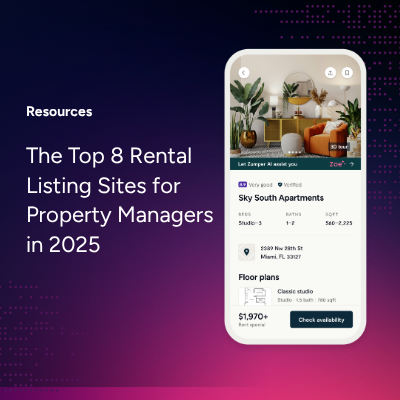
Landlord insurance provides similar coverage to that of standard homeowners insurance but for a property that is rented to others. This type of insurance is written to specifically cover potential risks landlords are prone to face, including loss of rental income and increased injury liability. Since there are additional coverages and because rental properties can be riskier to insure, a landlord insurance policy may cost up to 25% more than traditional homeowners insurance.
However, landlord coverage is essential to have if your rental property is damaged because coverage may be denied if you only have a traditional homeowners policy. Landlords need to understand what landlord insurance is, the different types that are available, and what it does and doesn’t cover.
What Is Landlord Insurance?
While landlord insurance coverage varies from insurer to insurer, the basic premise behind it is it provides a range of coverage for rental property owners. A typical landlord insurance policy may include coverage for rental reimbursement if you aren’t able to find paying tenants due to your property being damaged, medical expenses in the event someone is hurt on your property, liability against tenant lawsuits, and property damage. Some policies allow landlords to add additional forms of protection, including coverage for the contents in a furnished apartment, vandalism, construction, and burglary.
Types of Landlord Insurance
There are several different types of landlord insurance available, which can become overwhelming. Some coverages may be covered as part of your overall policy, while others may require an additional rider. Talking with a trusted and competent insurance agent can help you determine which coverages are essential for you to have based on your specific situation. Examples of landlord insurance coverage available include:
- Property Damage Insurance
Similar to dwelling coverage found in a traditional homeowners insurance policy, property damage coverage found in a landlord insurance policy covers structural damage to your property due to covered perils, including snow, hail, wind, and fire. This will also cover any personal property such as televisions, furniture, and kitchen appliances left on-site for tenant use. - Liability Insurance
Medical or liability coverage legally protects landlords if someone is injured on their property. For example, if a renter is injured on the rental property, the insurance company would attempt to settle on the landlord’s behalf, paying costs associated with the injury less any applicable deductibles. - Loss of Rental Income Insurance
If a landlord is unable to rent a property out because it has been damaged in a covered peril such as fire, this coverage may replace any lost rental income. - Flood Insurance for the Physical Property
Flood insurance is only needed if the rental property is located in a designated flood zone, an area not officially designated as a flood zone but still has the propensity to flood, or if a landlord fears a catastrophic flood could destroy their property. If a rental property is damaged by flooding from a burst pipe, a leak within the home, or from a hurricane, a landlord’s property damage insurance will not cover any losses. - Builder’s Risk Insurance
This type of policy is only needed for landlords who purchase mostly vacant or vacant properties and renovate them. Due to the increased risk of contractor injuries, property damage, and vandalism, this type of property generally doesn’t qualify for traditional liability or property policies. - Umbrella Insurance Policy
While never officially needed, umbrella insurance policies are usually a good thing for landlords to have as they provide additional liability protection. - Vandalism Insurance
If a rental property is damaged by vandalism, those damages typically aren’t covered by traditional landlord insurance unless additional vandalism coverage is purchased. - Burglary Insurance
While a traditional landlord insurance policy may cover property damage that occurred during a break-in, it usually won’t cover stolen items. Burglary insurance may be available to cover the theft of items left on the property to maintain it, including a lawn mower and other appliances. - Rental Property Under Construction Insurance
Landlords ready to gut or renovate a property or build a new dwelling can purchase construction insurance to provide coverage for the structure until it’s available for renters. - Building Codes Insurance
When landlords repair or replace parts of their rentals after the damage has occurred, they may be legally required to upgrade items like ventilation or wiring due to county or city codes changing since the property was initially built. Building codes insurance can help cover these additional costs.
What Landlord Insurance Does and Doesn’t Cover
Landlord insurance comes with some basic benefits that generally fall under the umbrella of most policies’ coverage. Some examples include typically covered events:
- Property damage from electrical issues, gas, natural disasters, and fire.
- Liability protection if a tenant is injured on the rental property due to something within a landlord’s control, including unshoveled sidewalks or bug infestation.
- Loss of income or rental default to cover rent loss from a tenant defaulting or the property becomes unlivable.
While landlord insurance policies vary in what they cover from company to company, there are a few general norms for non-coverage, including:
- Shared property: If landlords are living on the same property being rented out, they likely won’t qualify for landlord insurance.
- Maintenance issues: Standard mechanical breakdowns like a dishwasher, washer/dryer, or garbage disposal are generally up to the landlord to cover.
- Coverage for possessions owned by tenants typically isn’t covered by landlord insurance policies.
Bottom Line
A major tax benefit of being a landlord is being able to deduct business expenses related to the rental business, including insurance premiums. As with any business decisions, experts suggest shopping around for affordable landlord insurance coverage and comparing available policies and the coverage they provide. A financial consultant can also help landlords identify any coverage gaps their current policy may have.
Ready to rent your property? Try Zumper, where you can list your property, screen tenants, and fill your vacancy all in one place.



